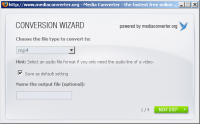23 September 2008
This morning I woke up late with a headache and the scratchings of a cold on the way.
Instead of my normal 6am start: time for checking my emails, facebook updates, web statistics, reading, etc. I slowly made a cup of coffee, potted about, got dressed and then realized too late that I hadn't prepped my 8am lesson.
My 8am's only 15 minutes walk from home but by the time it occurred to me that beyond their homework I didn't have any materials ready for our lesson, I had 15 minutes to go.
 So, what'd I do?
So, what'd I do?
CNN student news, of course.
If you haven't seen this site and haven't used it in an EFL lesson yet then check it out!
The site comes with video (mp4 via i-tunes), transcripts of the text and question sheets. Simply print out what you need, download the vid (free) pack up your computer and go.
In class, watch the video a couple of times (once without the transcript, once or twice with), go through the difficult vocabulary, do the questions and discuss the most relevant story in detail.
This takes an hour/hour and a bit.

If there's something of specific interest to your students within the report (in my case with this week's: the US financial crisis) then their homework is to follow-up on the story in the local press and report back next week.
This morning I woke up late with a headache and the scratchings of a cold on the way.
Instead of my normal 6am start: time for checking my emails, facebook updates, web statistics, reading, etc. I slowly made a cup of coffee, potted about, got dressed and then realized too late that I hadn't prepped my 8am lesson.
My 8am's only 15 minutes walk from home but by the time it occurred to me that beyond their homework I didn't have any materials ready for our lesson, I had 15 minutes to go.
 So, what'd I do?
So, what'd I do?CNN student news, of course.
If you haven't seen this site and haven't used it in an EFL lesson yet then check it out!
The site comes with video (mp4 via i-tunes), transcripts of the text and question sheets. Simply print out what you need, download the vid (free) pack up your computer and go.
In class, watch the video a couple of times (once without the transcript, once or twice with), go through the difficult vocabulary, do the questions and discuss the most relevant story in detail.
This takes an hour/hour and a bit.

If there's something of specific interest to your students within the report (in my case with this week's: the US financial crisis) then their homework is to follow-up on the story in the local press and report back next week.
Easy!
Karenne,

















